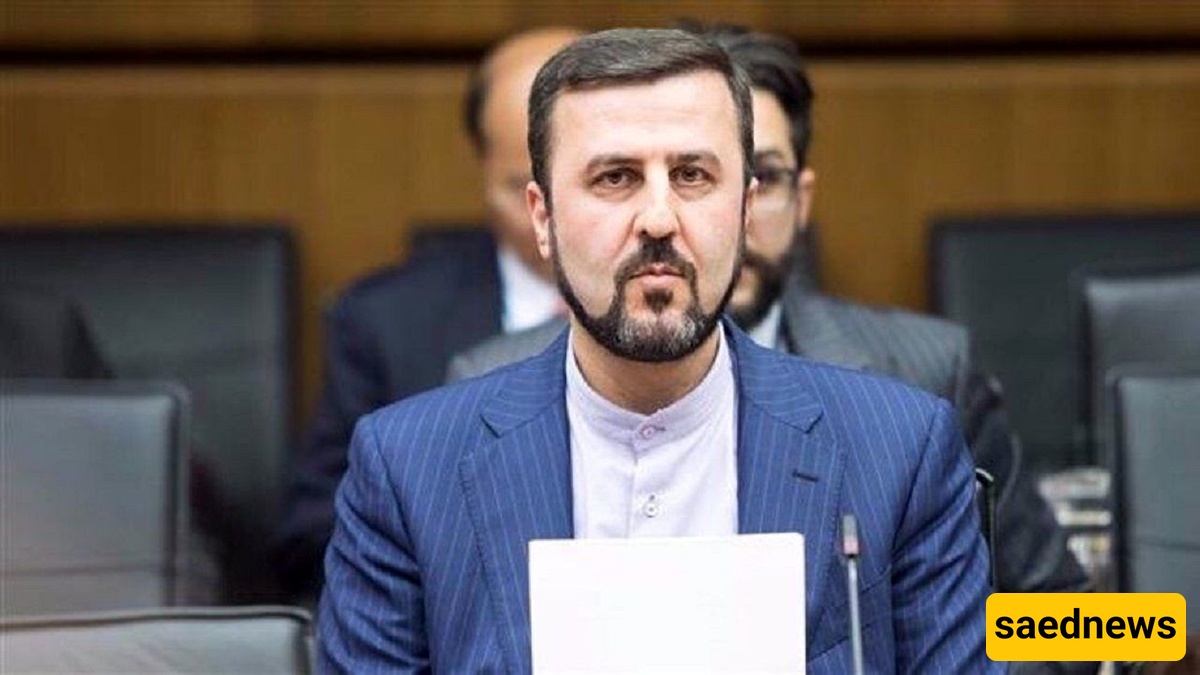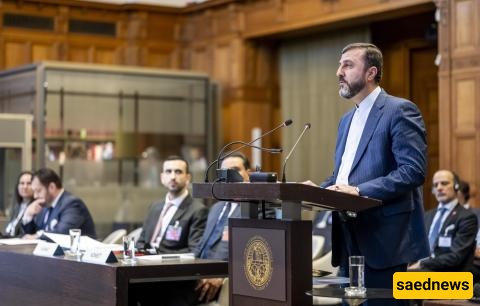SAEDNEWS: Iran’s Deputy Foreign Minister Kazem Gharibabadi stressed that Europe has no legal basis to activate the snapback mechanism, warning of firm reactions if such a move proceeds, while clarifying that IAEA inspections in Iran have not yet resumed except in the Bushehr case.

According to Saed News, The Deputy Legal Affairs Minister of Iran’s Foreign Ministry stated: In negotiations with Europeans, we explained that they are not in a legal position to activate the snapback mechanism, and there is no legal basis for such an action.
Kazem Gharibabadi, Deputy Minister for Legal and International Affairs of the Ministry of Foreign Affairs, said on the evening of Wednesday, 5 Shahrivar, after returning from the latest round of talks between Iran and the European troika in Geneva, during a televised interview: In this round of negotiations, we clearly explained that the Europeans are not in a legal position to activate the snapback mechanism, and there is no legal basis for such an action.

He further added: We fully explained these points to them; of course, the European side has a different view, but the reality is that Europeans have not implemented the JCPOA for years. Nevertheless, with utter audacity, they claim that they are still implementing it. We also told them, if you are truly implementing the JCPOA, provide a report showing how this has been done. The available indicators and information prove the opposite. Europe has not only failed to meet its JCPOA commitments, but it has also imposed new sanctions in recent years; the latest example was sanctions against Iran’s shipping and aviation industries in recent months.
The Deputy Minister of Legal and International Affairs of the Ministry of Foreign Affairs stressed: On the other hand, they again raised the issue of the “extension idea” that they had brought up about a month ago. In response, we emphasized that based on the negotiations and discussions held with the honorable minister, Mr. Araghchi, this matter essentially falls under the authority of the UN Security Council and can only be pursued within that framework. Any decision the Security Council makes will be the Council’s position, and Iran is not part of that process.
He continued: In this regard as well, yesterday Russia and China jointly proposed a resolution. We also made it clear to the European parties and the European Union that if they disregard the goodwill and interactive approach of the Islamic Republic of Iran, which has always emphasized a diplomatic settlement, and begin the process of activating the snapback mechanism, naturally Iran will respond accordingly. This reaction could include sending a letter or an official warning to the Security Council. We stated explicitly that in such a case, the ongoing cooperation and interactive path we have opened with the International Atomic Energy Agency will be completely affected and effectively stopped. Under such circumstances, the continuation of this interactive process will have no meaning.
Gharibabadi pointed out: We also emphasized that if this action is taken, Europe will effectively exclude itself from the diplomatic arena and dialogue with Iran, and from then on, negotiations will only be pursued within the Security Council framework and with its members. We will no longer have any dialogue with Europe in this domain. However, alongside these warnings, we clearly explained our legal positions and at the same time announced the readiness of the Islamic Republic of Iran to continue contacts and diplomatic interactions.
The Deputy Minister of Foreign Affairs, referring to the prospect of Iran’s countermeasures if the three European countries misuse legal mechanisms, said: We made it clear to the other side that the choice is theirs; they can either take the path of confrontation or choose the path of interaction and cooperation. This gives the Europeans an opportunity to carefully review the results of the meeting and make a decision. We are prepared for both situations; for cooperation and interaction, and also if they wish to misuse legal mechanisms and Resolution 2231, Iran will respond accordingly—a response whose dimensions have already been explained. We hope the European side will act with rationality.
In response to a question about the status of IAEA inspections of Iran’s nuclear facilities, Gharibabadi explained: IAEA inspections have not yet started in Iran. We act according to the law passed by the Islamic Consultative Assembly, and this law is very clear and explicit. At present, only the presence of a few IAEA inspectors in Iran, with legal coordination and necessary permits, is for supervising the loading and changing of fuel at the Bushehr nuclear plant. This matter is carried out in cooperation between Iran and Russia, and it has been agreed that any change or reloading of fuel will take place under IAEA supervision.
He continued: If IAEA inspectors are not present in Iran, the operation of the Bushehr power plant will be disrupted. Do some people really want the Bushehr power plant to shut down? Certainly, no one wants that. Therefore, the return of IAEA inspectors relates only to this specific case, which has been carried out with the necessary coordination and according to the needs of the Islamic Republic of Iran.
In another part of his remarks, the Deputy Foreign Minister said: The main responsibilities and decision-making in this area rest with the Supreme National Security Council, and its resolutions are binding. Currently, discussions are underway between Iran and the IAEA to establish new cooperation arrangements, but no text has been finalized so far, and only ideas have been exchanged between the two sides.
He emphasized that there are still several points with the IAEA which are among Iran’s principled positions and must be included in the final text, noting: Therefore, so far no agreed text exists. Even if a text is finalized between Iran and the IAEA, it must go through the legal approval process inside, namely the Supreme National Security Council. At present, there is no finalized mechanism with the IAEA and no new inspections have started, except for the specific case of the Bushehr power plant which is carried out according to the law of parliament and must continue.
Gharibabadi added: It is obvious that if the Europeans take actions based on their political inclinations, these discussions between Iran and the IAEA will also be affected.

